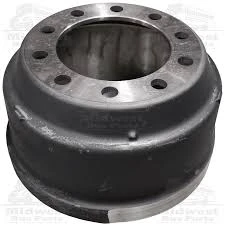
-
 Afrikaans
Afrikaans -
 Albanian
Albanian -
 Amharic
Amharic -
 Arabic
Arabic -
 Armenian
Armenian -
 Azerbaijani
Azerbaijani -
 Basque
Basque -
 Belarusian
Belarusian -
 Bengali
Bengali -
 Bosnian
Bosnian -
 Bulgarian
Bulgarian -
 Catalan
Catalan -
 Cebuano
Cebuano -
 Corsican
Corsican -
 Croatian
Croatian -
 Czech
Czech -
 Danish
Danish -
 Dutch
Dutch -
 English
English -
 Esperanto
Esperanto -
 Estonian
Estonian -
 Finnish
Finnish -
 French
French -
 Frisian
Frisian -
 Galician
Galician -
 Georgian
Georgian -
 German
German -
 Greek
Greek -
 Gujarati
Gujarati -
 Haitian Creole
Haitian Creole -
 hausa
hausa -
 hawaiian
hawaiian -
 Hebrew
Hebrew -
 Hindi
Hindi -
 Miao
Miao -
 Hungarian
Hungarian -
 Icelandic
Icelandic -
 igbo
igbo -
 Indonesian
Indonesian -
 irish
irish -
 Italian
Italian -
 Japanese
Japanese -
 Javanese
Javanese -
 Kannada
Kannada -
 kazakh
kazakh -
 Khmer
Khmer -
 Rwandese
Rwandese -
 Korean
Korean -
 Kurdish
Kurdish -
 Kyrgyz
Kyrgyz -
 Lao
Lao -
 Latin
Latin -
 Latvian
Latvian -
 Lithuanian
Lithuanian -
 Luxembourgish
Luxembourgish -
 Macedonian
Macedonian -
 Malgashi
Malgashi -
 Malay
Malay -
 Malayalam
Malayalam -
 Maltese
Maltese -
 Maori
Maori -
 Marathi
Marathi -
 Mongolian
Mongolian -
 Myanmar
Myanmar -
 Nepali
Nepali -
 Norwegian
Norwegian -
 Norwegian
Norwegian -
 Occitan
Occitan -
 Pashto
Pashto -
 Persian
Persian -
 Polish
Polish -
 Portuguese
Portuguese -
 Punjabi
Punjabi -
 Romanian
Romanian -
 Russian
Russian -
 Samoan
Samoan -
 Scottish Gaelic
Scottish Gaelic -
 Serbian
Serbian -
 Sesotho
Sesotho -
 Shona
Shona -
 Sindhi
Sindhi -
 Sinhala
Sinhala -
 Slovak
Slovak -
 Slovenian
Slovenian -
 Somali
Somali -
 Spanish
Spanish -
 Sundanese
Sundanese -
 Swahili
Swahili -
 Swedish
Swedish -
 Tagalog
Tagalog -
 Tajik
Tajik -
 Tamil
Tamil -
 Tatar
Tatar -
 Telugu
Telugu -
 Thai
Thai -
 Turkish
Turkish -
 Turkmen
Turkmen -
 Ukrainian
Ukrainian -
 Urdu
Urdu -
 Uighur
Uighur -
 Uzbek
Uzbek -
 Vietnamese
Vietnamese -
 Welsh
Welsh -
 Bantu
Bantu -
 Yiddish
Yiddish -
 Yoruba
Yoruba -
 Zulu
Zulu
drum brake not working
Troubleshooting Drum Brake Issues Why They May Not Be Working
Drum brakes are a vital component of a vehicle's braking system, widely used in many cars, particularly older models and on the rear wheels of newer vehicles. While generally reliable, there are instances when drum brakes may fail to function properly. This article delves into common reasons why drum brakes may not be working and how to address these issues.
Understanding Drum Brakes
Before diving into troubleshooting, it's essential to understand how drum brakes operate. Unlike disc brakes that use a caliper to squeeze pads against a rotor, drum brakes utilize a cylindrical drum that rotates with the wheel. Inside the drum are brake shoes that expand against the inner surface of the drum when the brake pedal is pressed, creating friction to slow down the vehicle.
Common Issues with Drum Brakes
1. Worn Brake Shoes One of the most prevalent causes of drum brake failure is worn-out brake shoes. Over time, the friction material on the shoes can diminish, leading to reduced stopping power. It’s crucial to inspect brake shoes regularly, as they should be replaced when the material becomes too thin.
2. Brake Fluid Leak If the drum brakes are not engaging, a leak in the hydraulic system could be the culprit. Brake fluid is essential for transmitting force from the brake pedal to the brake shoes. Inspecting for leaks in the master cylinder, brake lines, or wheel cylinders is necessary to ensure proper functioning.
drum brake not working

3. Misadjustment Drum brakes require precise adjustments to function adequately. If the shoes are out of alignment, they may either not engage at all or may drag against the drum, causing premature wear. Adjusting the brake shoes to make sure they are set correctly can resolve these issues.
4. Faulty Wheel Cylinder The wheel cylinder converts hydraulic pressure into mechanical force, pushing the brake shoes against the drum. If it fails, the brakes may not engage. Signs of wheel cylinder failure include brake fluid leaks and inconsistent braking performance. A faulty wheel cylinder should be replaced immediately.
5. Contaminated Brake Shoes or Drum Oil, grease, or moisture can significantly impact the effectiveness of drum brakes. If the brake shoes or drum get contaminated, the friction necessary for stopping diminishes. Cleaning the contaminated surfaces or replacing the shoes may be necessary.
6. Rust and Corrosion Over time, particularly in damp environments, rust can build up inside the drum. This rust can impede the shoes' ability to expand and create friction. Regular maintenance and inspection can help identify and mitigate rust issues before they become severe.
Conclusion
Drum brakes are essential for the safety and performance of a vehicle. If they are not working, it is vital to diagnose and address the problem promptly. Regular maintenance, including inspections of components like brake shoes, wheel cylinders, and the hydraulic system, can help prevent brake failure. If you’re unsure about the state of your drum brakes, consulting with a professional mechanic is always a wise decision. Taking the necessary steps to ensure your braking system functions correctly can safeguard both your vehicle's performance and your safety on the road.
-
What Are Drum BrakesNewsJul.07,2025
-
Understanding Brake Drum MaterialNewsJul.07,2025
-
Semi-Trailer Brake Drum: A Key Component for Extreme Loads and Long-Distance TransportNewsJul.07,2025
-
Drum Brake Pads for SaleNewsJul.07,2025
-
Brake Drums for SaleNewsJul.07,2025
-
Brake Drum ManufacturerNewsJul.07,2025
-
Aluminum Brake Drums: The Future of High-Performance CarsNewsJul.07,2025
